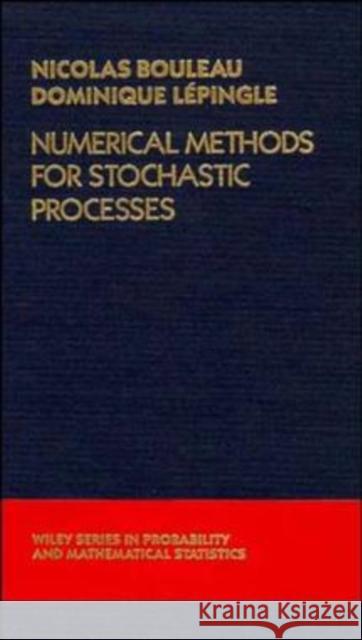Numerical Methods for Stochastic Processes » książka
Numerical Methods for Stochastic Processes
ISBN-13: 9780471546412 / Angielski / Twarda / 1994 / 384 str.
In recent years, random variables and stochastic processes have emerged as important factors in predicting outcomes in virtually every field of applied and social science. Ironically, according to Nicolas Bouleau and Dominique Lepingle, the presence of randomness in the model sometimes leads engineers to accept crude mathematical treatments that produce inaccurate results. The purpose of Numerical Methods for Stochastic Processes is to add greater rigor to numerical treatment of stochastic processes so that they produce results that can be relied upon when making decisions and assessing risks. Based on a postgraduate course given by the authors at Paris 6 University, the text emphasizes simulation methods, which can now be implemented with specialized computer programs. Specifically presented are the Monte Carlo and shift methods, which use an "imitation of randomness" and have a wide range of applications, and the so-called quasi-Monte Carlo methods, which are rigorous but less widely applicable. Offering a broad introduction to the field, this book presents the current state of the main methods and ideas and the cases for which they have been proved. Nevertheless, the authors do explore problems raised by these newer methods and suggest areas in which further research is needed. Extensive notes and a full bibliography give interested readers the option of delving deeper into stochastic numerical analysis. For professional statisticians, engineers, and physical and social scientists, Numerical Methods for Stochastic Processes provides both the theoretical background and the necessary practical tools to improve predictions based on randomness in the model. With its exercises andbroad-spectrum coverage, it is also an excellent textbook for introductory graduate-level courses in stochastic process mathematics.











